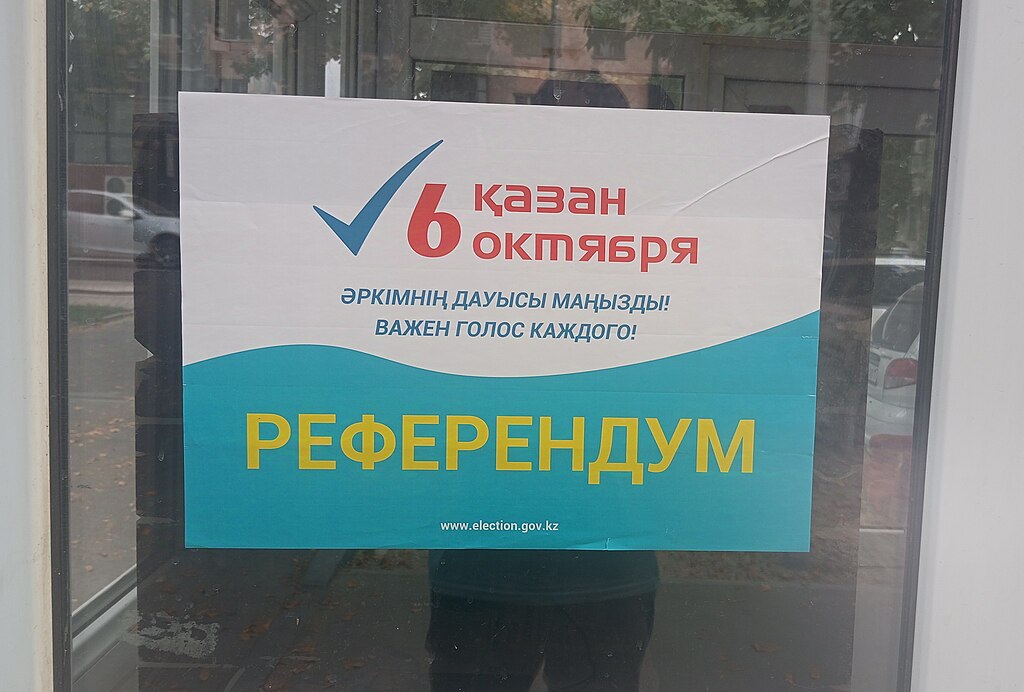Russia and Central Asia in 'nuclear diplomacy'
The referendum in which 71% of voters in Kazakhstan approved the construction of a new nuclear power plant is seen as a great opportunity for the Russian company Rosatom, one of the giants of the Russian economy that is resisting the weakening war phase and is currently building 20 reactors abroad.
Astana (AsiaNews) - The referendum in Kazakhstan on the construction of a new nuclear power plant, according to many international and domestic media, was little more than ‘political theatre’ to justify Kazakhstan's ambitions in the energy and economic sectors. The authorities have assured that the plant will be entrusted to an ‘international consortium’, but commentators believe that the key contract will be the one with the Russian company Rosatom, creating a back-and-forth game between Moscow and Astana.
The Kazakh government insists on the need to achieve energy security, while critics express concerns about the country's ecology, especially if the reactor will be located near the increasingly parched Lake Balkhaš. They also speak of the risks of corruption, doubting the government's ability to guarantee the transparency of the project. The voices of opponents prior to the referendum were stifled in various ways, despite popular assemblies being held in all Kazakhstan's cities.
In the end, the predictable result saw the approval of the power plant with 71% of the votes in favour, and in addition to Rosatom, several companies from at least four countries are vying for its construction. It should be considered that Russia controls 95% of Kazakhstan's oil export routes, and the NPP could provide the Kremlin with new leverage over Kazakhstan's entire energy sector.
In the American magazine Diplomat, specialist Akilbek Tilavoldiev, a researcher at the State University of Tashkent, writes an analysis of the situation. He emphasises the importance of the upcoming US presidential elections also on energy issues in Central Asia. No US president has ever visited this region, but the recent contacts according to the 5+1 format (which started already during Barack Obama's presidency) make relations between the US and the five countries more sensitive today. During Donald Trump's presidency, the document on the ‘US Strategy in Central Asia for 2019-2015: Strengthening Sovereignty and Economic Flourishing’ was approved.
A Trump victory would lead to the revival of this strategy, with a very pragmatic approach for the mutual economic benefit of the partners. If Kamala Harris triumphs instead, according to Tilavoldiev, ‘social and ecological aspects will prevail’, and everything could be called into question. Russia is watching, but the Kazakh project could offer an important way out of isolation due to the sanctions regime, and Moscow insists on nuclear energy support not only in Kazakhstan, but throughout Central Asia.
Uzbekistan has already signed an agreement with Russia for a small nuclear power plant to be built by Rosatom, and a similar project is also being considered in Kyrgyzstan. According to Kacper Szulecki, a researcher at the Institute for International Affairs in Oslo, ‘Central Asia holds a special place in Russia's nuclear energy diplomacy due to its post-Soviet legacy, and Rosatom can work there more freely than anywhere else’, considering the lack of language barriers, personal and institutional contacts, and various other social, political and economic factors.
Security risks in front of the new nuclear power plants are also considered, an element that became evident in Russia's conflict in Ukraine. The risk of sabotage would not be particularly high, but the destructive potential would clearly be very high and a source of great apprehension. Rosatom is one of the last giants of the Russian economy that still withstands the weakening of the war phase, being the supplier of 26 out of 59 energy blocks under construction around the world today, 20 of which are being built outside Russia: Bangladesh, China, Egypt, India, Turkey and others, to which the crucial hubs of Central Asia are to be added.
Photo: a sign for the vote in the nuclear referendum in Kazakhstan (Wikimedia/Muzaffar Turgunov)







.png)










